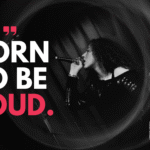Now Reading: Jack Antonoff Slams Michael Rapino’s ‘Sick’ Ticket-Price Remarks
-
01
Jack Antonoff Slams Michael Rapino’s ‘Sick’ Ticket-Price Remarks
Jack Antonoff Slams Michael Rapino’s ‘Sick’ Ticket-Price Remarks


Jack Antonoff, who’s criticizing ticket-price comments made by Live Nation head Michael Rapino. Photo Credit: Alex Lockett
Michael Rapino’s views on ticket prices are “sick” – at least according to Jack Antonoff, who’s criticizing the Live Nation head’s latest comments about the cost of attending sports games versus concerts.
As some will recognize, the subject isn’t new for Rapino, who’s made similar remarks multiple times over the years. During Live Nation’s Q3 2024 earnings call, for instance, the exec explored the belief that spending large sums to attend games “is kind of a badge of honor,” while “music, which is priced much lower than sports, seems to get more of the emotional reaction.”
This time around, the higher-up, speaking at CNBC’s and Boardroom’s Game Plan conference, took things a bit further by describing concert tickets as “underpriced.”
(Side note: Labels and other music companies probably have issues of their own with Rapino’s statements – including that “the record label, all the other ways [artists] made money [besides live performances] is irrelevant now.”)
“Music has been underappreciated,” Rapino said. “I always joke: Sports – it’s like a badge of honor to spend 70 grand for a Knicks courtside [seat]. They beat me up if we charge $800 for Beyonce, right?
“We have a lot of runway left. So when you read about the ticket prices going up, it’s still – average concert price is $72. Try going to a Laker game for that, and there’s 80 of them, or whatever the hell. So the concert is underpriced, has been for a long time,” he proceeded.
As highlighted, Antonoff fired back against the assessment. “this really breaks my heart and is a sick way of looking at it,” he wrote on X, including in his post an image of the relevant Rapino quote.
“answer is simple: selling a ticket for more than its face value should be illegal,” Antonoff continued in a follow-up post. “then there is no chaos and you give us back the control instead of creating a bizarre free market of confusion amongst the audience who we love and care for.”
Unsurprisingly, given fans’ (and lawmakers’) well-documented problems with Live Nation and especially its Ticketmaster subsidiary, many are also taking the opportunity to criticize the opinion and the businesses themselves.
Regardless of how one feels about Live Nation/Ticketmaster, however, a bit of objective reflection suggests that the comments may have touched on a core cultural difference between sports and concerts. Non-nosebleed seats often cost an arm and a leg at games, and rarely, if ever, are athletes, teams, or leagues the target of sweeping pricing complaints.
Building on the idea, certain commercially prominent artists tend to leverage well-oiled marketing machines and runaway hype into ticket prices that aren’t commensurate with actual talent. It seems safe to say that these passes are badly overvalued as opposed to underpriced.
As is so often the case, two things, though seemingly contradictory at a glance, can both be true.
If some concerts are punching above their rightful ticket-price weight thanks to external factors – frankly, a few Antonoff-associated acts come to mind – all manner of incredibly talented professionals are charging less than the above-mentioned average for their shows.
Of course, these undervalued artists, frequently playing small-gig venues that are likewise feeling the pinch, probably weren’t front of mind for Rapino when making the “underpriced” remark.
But this doesn’t mean they aren’t being shortchanged – an unfortunate reality, ultimately a consequence of key stakeholders’ and consumers’ sacrificing genuine art in favor of lowest-common-denominator appeal, that would require quite a lot of ink to unpack.























